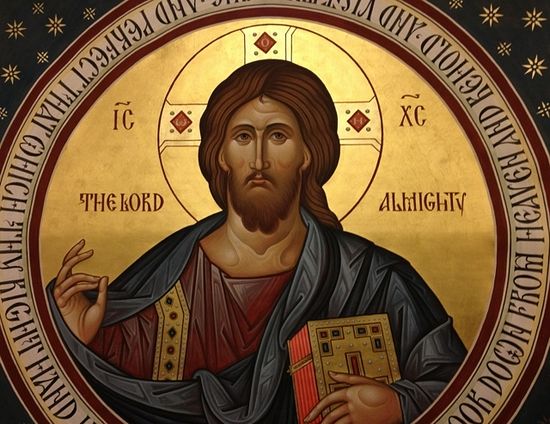Look at the June 2008 the Pew Charitable Trust findings on religious beliefs and practices in America. The data on Orthodox Christians are, to put I mildly, unsettling.
The good news is that 95% of Orthodox Christians believe in God. But this number reflects a wide-range of certitudes about God’s existence. 71% are “absolutely certain” God exists, 19% are “fairly certain,” 4% aren’t “too certain” and 1% aren’t “sure how certain” they are that they believe in God (71+19+4+1=95).Look even a bit carefully at the data and an even more disturbing portrait emerges.
While 95% believe God exists, just less than half (49%) believe in a personal God. So if we do the math (95 x .49), we discover that out of 100 Orthodox Christians, only 47 believe in apersonal God. Not mind you 47% necessarily believe that God is Father, Son and Holy Spirit (that question wasn’t asked) but only that God is, in some manner, a personal being. Distressing as this is, just under a third of those who believe God exist (32 out of 100) think of God as an “impersonal force” (95 x .34 = 32).
And the remaining 21 out of a 100 (47 + 32 = 79; 100 – 79 = 21)? They believe in a god that is “other/both/neither” personal or impersonal (6%). Some just “don’t know” or “refuse” to say what they believe about God (6%). 4% “don’t believe in God” and 1% either have some “other” notion of God or simply “don’t know” what they believe about God.
This situation is one that certainly requires better adult education. Catechesis and sound doctrinal preaching would likely be helpful for those who don’t know what they believe or whose beliefs about God are confused or ill-defined. We would be wrong however to assume that better, more systematic or clearer presentations of the dogmatic tradition of the Church will solve the problem. The fact is that some people—no matter what they believe or don’t believe about God—will walk away when they hear what the Church believes about God. It has happened before (for example, John 6:41-66, Luke 18:8, Acts 17: 22-33). And it often happens because the person is not ready to hear the Gospel.
So while religious education is important, information alone will not solve the problem. Spiritualformation is also necessary. We need to help lay people live as disciples of Jesus Christ. This is especially important when we talking about men who aspire to ordination but it is imperative for all Orthodox Christians to be intentional disciples of Jesus Christ.
Writing in a slightly different context, Sherry Weddell’s diagnosis of the pastoral situation in the Catholic Church is applicable to the Orthodox Church. “[O]ur fundamental problem is that most of our people are not yet disciples.” This means that most of the faithful (clergy and laity) “will never be apostles.” What needs to happen is people need to learn “to follow Jesus Christ in the midst of his Church.” Unfortunately, “at the parochial level, we have accepted this chasm between the Church’s teaching and Catholics’ lived relationship with God as normative, and this has shaped our community culture, our pastoral assumptions, and our pastoral practices with devastating results ” (Forming Intentional Disciples, p. 11). Let me offer one, brief illustration.
When I was a college chaplain in Pittsburgh, I often served on the weekends as a supply priest. One summer it happened that I would be at a different parish every weekend for the entire summer. I served convert and cradle parishes, Greek, OCA, Carpatho-Russian, Ukrainian, Romanian and Antiochian throughout Western Pennsylvania and Northeast Ohio.
In each community, I preached on basically the same theme: Jesus loves you. And in each parish, I got the same two responses. “That was the BEST sermon I ever heard!” the person would pause, look down at the ground before saying “And I NEVER knew.”
When we fail to form people as disciples of Jesus Christ it isn’t just that we miss out on the fruits of vibrant ministries or sacrificial stewardship. It also means that our communities are filled with people who haven’t experienced God’s love for them. Imagine, if the data are correct (and they are) almost a third of Orthodox Christians (those who think God is an impersonal force) don’t just not know God loves them, they have an understanding of God that makes knowing His love for them impossible to know. Added to this are the other 20% who don’t—can’t—know God’s love for them because they are effectively agnostics or atheists.
In other words, if we neglect spiritual formation and rely only on catechetical information, we risk leaving over half the faithful in a situation that undermines their experience of God’s love for them. Not making disciples means that however beautiful the building, how wonderful the music, how warm the friendship, how tasty the food, ultimately most Orthodox Christians live lives of cosmic loneliness. Even if they believe God exists, it is an impersonal god in which they believe. And an impersonal god that can’t love them because love is ALWAYS personal.
To return to Schmemann’s essay, the root of secularism in the parish is not American culture, the free market or democracy. It is rather than most of us don’t know, can’t know, that God loves us.


